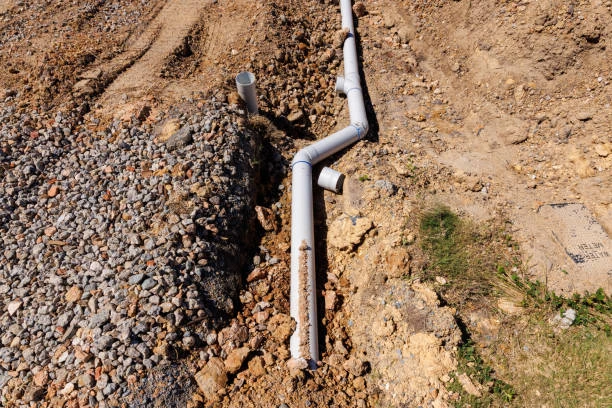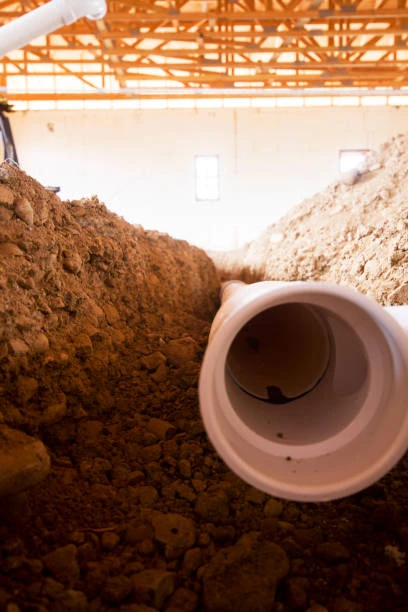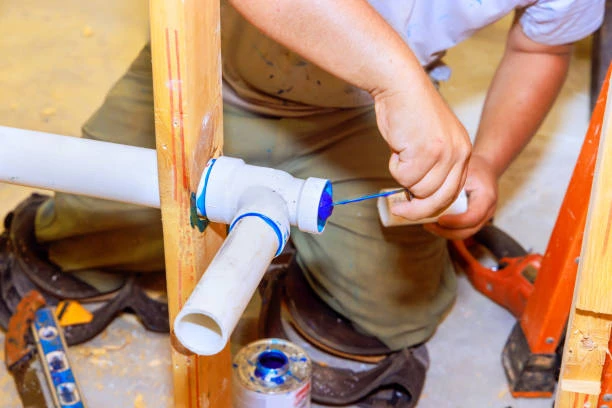PVC pipes have long been the go-to solution for many plumbing, irrigation, and industrial applications due to their durability, cost-effectiveness, and ease of use. This article explores key trends and developments in the world of PVC pipes, drawing insights from the PVC Pipes Archives to give you a comprehensive view of this essential material. From their growing popularity in construction to new technological advancements, PVC pipes continue to evolve.
What Are PVC Pipes?
Understanding the Basics of PVC Pipes
PVC stands for Polyvinyl Chloride, a synthetic plastic polymer commonly used in a wide range of applications, including piping. Polyvinyl chloride pipes are renowned for their strength, resistance to corrosion, and affordability, making them an essential component in plumbing systems, irrigation systems, and even electrical conduit installations.
PVC pipes are made by extruding the polymer through molds and shaping it into long, rigid cylinders. The pipes are then cut into lengths based on project requirements. These pipes come in various sizes and thicknesses, designed to meet different pressures and flow requirements.
Growing Popularity of PVC Pipes in Various Industries
Why PVC Pipes Are in Demand
Over the past few decades, PVC pipes have become increasingly popular in several industries, especially plumbing, agriculture, and construction. There are a few reasons why PVC pipes are in high demand:
- Cost-Effectiveness: PVC pipes are much cheaper than alternatives like copper or steel pipes. This makes them ideal for large-scale construction and infrastructure projects.
- Ease of Installation: PVC pipes are lightweight and easy to work with. They do not require heavy tools or machinery to install, making them a cost-efficient option for residential and commercial use.
- Durability and Longevity: PVC pipes are resistant to corrosion, which is a major concern for metal pipes. They also have a longer lifespan, making them a reliable choice for water supply and drainage systems.
- Low Maintenance: Unlike metal pipes, PVC pipes do not rust or corrode over time. This reduces the maintenance and repair costs significantly.
As these benefits continue to make PVC pipes an attractive option, many projects, both large and small, are opting for PVC piping systems.
Technological Advancements in PVC Pipes
New Innovations in PVC Pipes
As the demand for PVC pipes has increased, so has the need for innovation in the manufacturing process. Several technological advancements have emerged in recent years to improve the performance, durability, and environmental impact of PVC pipes.
- Reinforced PVC Pipes: One of the most notable advancements in PVC pipe technology is the introduction of reinforced PVC pipes. These pipes incorporate fiber and other strengthening materials, enhancing their ability to withstand high-pressure systems and extreme temperatures.
- Improved Joint Designs: New joint designs, such as push-fit connectors and solvent weld joints, have made the installation of PVC pipes even easier and faster. These designs ensure a leak-free system, even in challenging conditions.
- Enhanced UV Resistance: PVC pipes are now being manufactured with better UV resistance, making them suitable for outdoor use without the risk of degradation from sunlight exposure. This development opens up new possibilities for using PVC pipes in both residential and industrial applications.
- Environmental Considerations: Recent innovations have focused on making PVC pipes more eco-friendly. New manufacturing techniques aim to reduce the environmental footprint of PVC production, and recycling efforts have also improved, leading to the creation of recycled PVC pipes. These innovations help reduce waste and promote sustainability.

PVC Pipes in Plumbing and Infrastructure Projects
The Role of PVC Pipes in Plumbing Systems
Plumbing systems rely on PVC pipes for transporting water and wastewater efficiently. From residential homes to large-scale infrastructure projects, PVC pipes have become the material of choice for water supply, drainage, and sewer systems.
In plumbing systems, PVC pipes offer several benefits:
- Water Safety: PVC pipes are non-toxic and do not leach chemicals into drinking water, making them a safe choice for potable water systems.
- Cost Savings: Plumbing systems using PVC pipes are more affordable compared to those using metal pipes like copper or steel.
- Corrosion Resistance: Since PVC pipes do not rust, they are more durable in plumbing applications, which are subject to long-term exposure to water and other substances.
- Versatility: PVC pipes are available in various diameters and pressure ratings, making them suitable for everything from small residential plumbing to large commercial and industrial systems.
PVC Pipes in Large-Scale Infrastructure
Beyond plumbing, PVC pipes play an essential role in large infrastructure projects. They are widely used in irrigation systems, sewage systems, and stormwater drainage. Their lightweight nature and resistance to environmental factors make them ideal for underground and above-ground applications.
The strength and flexibility of PVC pipes make them the preferred material for these types of systems, ensuring long-term functionality and minimal maintenance. Additionally, the ease of installation reduces labor costs, contributing to overall project savings.
Comparing IFAN and Outshine PVC Angle Valves
IFAN PVC Angle Valve vs Outshine PVC Angle Valve
When it comes to PVC angle valves, there are a variety of manufacturers offering different models. Two well-known brands in the market are IFAN and Outshine. Let’s compare these two brands to highlight the advantages of IFAN’s products.
- Build Quality: IFAN angle valves are known for their superior build quality. They are made from high-grade PVC material, ensuring durability and resistance to corrosion. Outshine, while offering decent products, tends to focus more on low-cost manufacturing, which can sometimes compromise the quality of the valves.
- Design and Functionality: IFAN angle valves are engineered for easy installation and smooth operation. Their designs ensure leak-proof connections and optimal flow control. On the other hand, Outshine valves, while functional, may not have the same level of design precision, leading to potential issues with long-term performance.
- Longevity: IFAN valves are known to last longer, thanks to their rigorous quality control and use of high-grade materials. Outshine valves may not offer the same durability, especially in high-pressure or high-temperature systems.
- Customer Support: IFAN provides robust customer support, including warranties and technical assistance. While Outshine also offers customer service, IFAN is often praised for its responsiveness and comprehensive post-purchase support.
Overall, IFAN PVC angle valves offer superior quality, design, and longevity, making them the better choice for those seeking reliable and high-performance valves.
Conclusion
PVC pipes have become an essential part of modern plumbing, construction, and industrial systems. Their affordability, durability, and ease of use have made them the material of choice for many applications. Technological advancements continue to improve the performance and sustainability of PVC pipes, ensuring their place in the future of infrastructure development.
When it comes to PVC products, brands like IFAN offer superior quality, as demonstrated by their high-performance angle valves. By choosing the right PVC pipe and valve products, you can ensure the longevity and reliability of your systems while benefiting from cost savings and environmental benefits.
Frequently Asked Questions (FAQs)
1. What are the benefits of using PVC pipes?
PVC pipes are cost-effective, durable, lightweight, and resistant to corrosion. They are ideal for water supply, drainage, and industrial applications.
2. How long do PVC pipes last?
PVC pipes can last for decades, with an average lifespan of 25-40 years, depending on environmental conditions and usage.
3. Can PVC pipes be used for hot water systems?
Standard PVC pipes are not suitable for hot water systems. However, PPR pipes, a similar plastic material, are designed specifically for hot water applications.
4. What is the difference between PVC and HDPE pipes?
PVC pipes are generally more rigid and easier to install, while HDPE pipes are more flexible and resistant to cracking under extreme temperatures or pressures.
5. Are PVC pipes recyclable?
Yes, PVC pipes are recyclable. Many manufacturers now produce recycled PVC pipes, contributing to sustainability efforts in the industry.


















